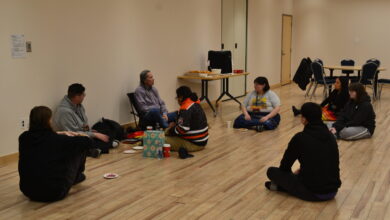Reading retention tips from the Student Success Centre
 Flickr User Wonderlane
Flickr User WonderlaneRegardless of their programs or faculties, most students at the University of Alberta can anticipate large amounts of readings.
Reading retention is the biggest complaint heard at the Student Success Center, Mebbie Bell, director of the Centre, said. But reading and reviewing material does not have to be a dreadful experience, she explained.
“All studying is a form of reading,” Bell said. “Most of us can understand the information when we are working with it but then, if we don’t do anything active with the material, a day later it’s fuzzy.”
The key to maximizing reading work and recalling fine details is resisting the temptation to study in a large window of time, Bell said. Scheduling all reading into one long session is not recommended. Instead, breaking reading into smaller, more manageable chunks throughout the week makes study sessions more productive in retaining information.
“People just get so sick of sitting there trying to read,” Bell said. “You want to use active reading strategies otherwise your efficiency drops off after the consecutive eighth or tenth hour.”
Students should engage with readings by drawing diagrams of the material or by making short notes during study sessions. Students can also take short “boring breaks” to stay focused and prevent their minds from wandering, such as refilling their water bottles.
Another way to maximize reading potential is by starting with a five-minute pre-read before any intense engagement with the material to become familiar with the boundaries of reading.
“You cannot begin to decide what couch to buy, what type of carpet you want, or the colour to paint the front door if you have not built the structure first,” Bell said. “Previewing is building the structure. All other things you do like attending class or doing labs, fill in the structure.”
Students should quickly review all at the end of reading. A few days later, they should review once more to ensure they’re had multiple short engagements to fully understand the content and to reduce stress. Bell recommends keeping reviewed information recent and meaningful, as less time overall will be spent reading. The more times material is reviewed, the more familiar one becomes with the material which improves efficiency.
“If you take one small task or chunk of reading in a short set period of time, this lowers your stress and allows you to string more chunks together.”




